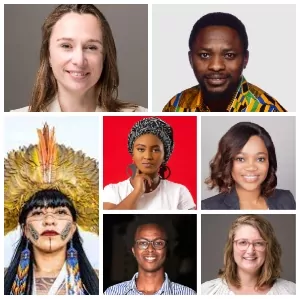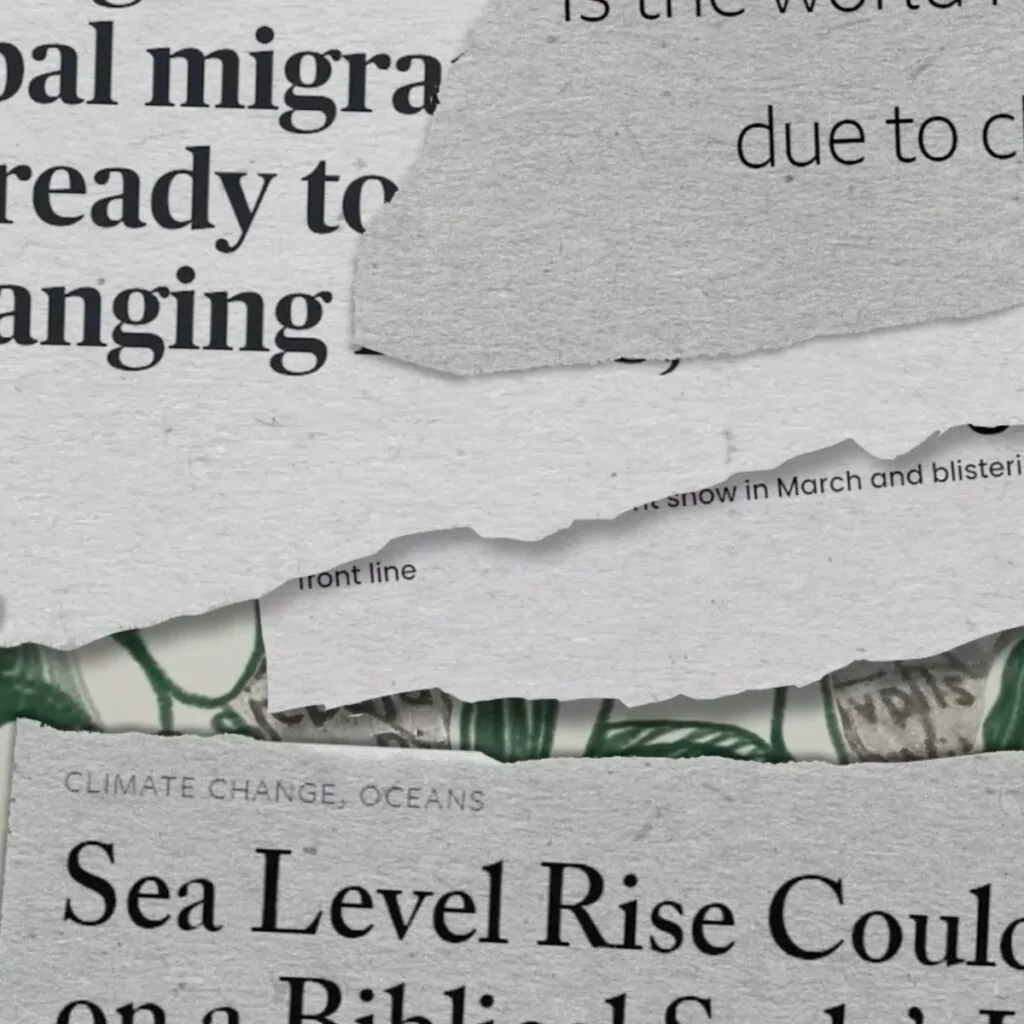Beyond the climate crisis
We are excited to share with you the first-ever edition of the Livism newsletter! What is livism, you might ask? It’s a name that brings together living and activism – Livism is a space to get to know the climate crisis more intimately through people, their lives, their struggles and their solutions.
Each month we’ll share inspirational and enlightening stories with you, exploring how social issues are affected by, and intertwined with, the climate crisis. These will highlight the vast diversity of issues, impacts and solutions within the crisis – we’ll tell you about how it is impacting communities in different ways and you’ll have the chance to read about how those on the frontlines are leading some of the solutions.
This crisis is about more than just reducing emissions, it’s also about ensuring that decisions and outcomes are equitable for all countries and sections of society.
In this first edition, we start with a simple explainer of how interconnected the climate crisis is with other issues, share an exciting podcast about climate change in Africa and introduce you to young Kenyan climate activist Elizabeth Wathuti, who tells us what inspired her to join the movement.
Happy reading!
From,
The Livism Team
Changing our climate lens
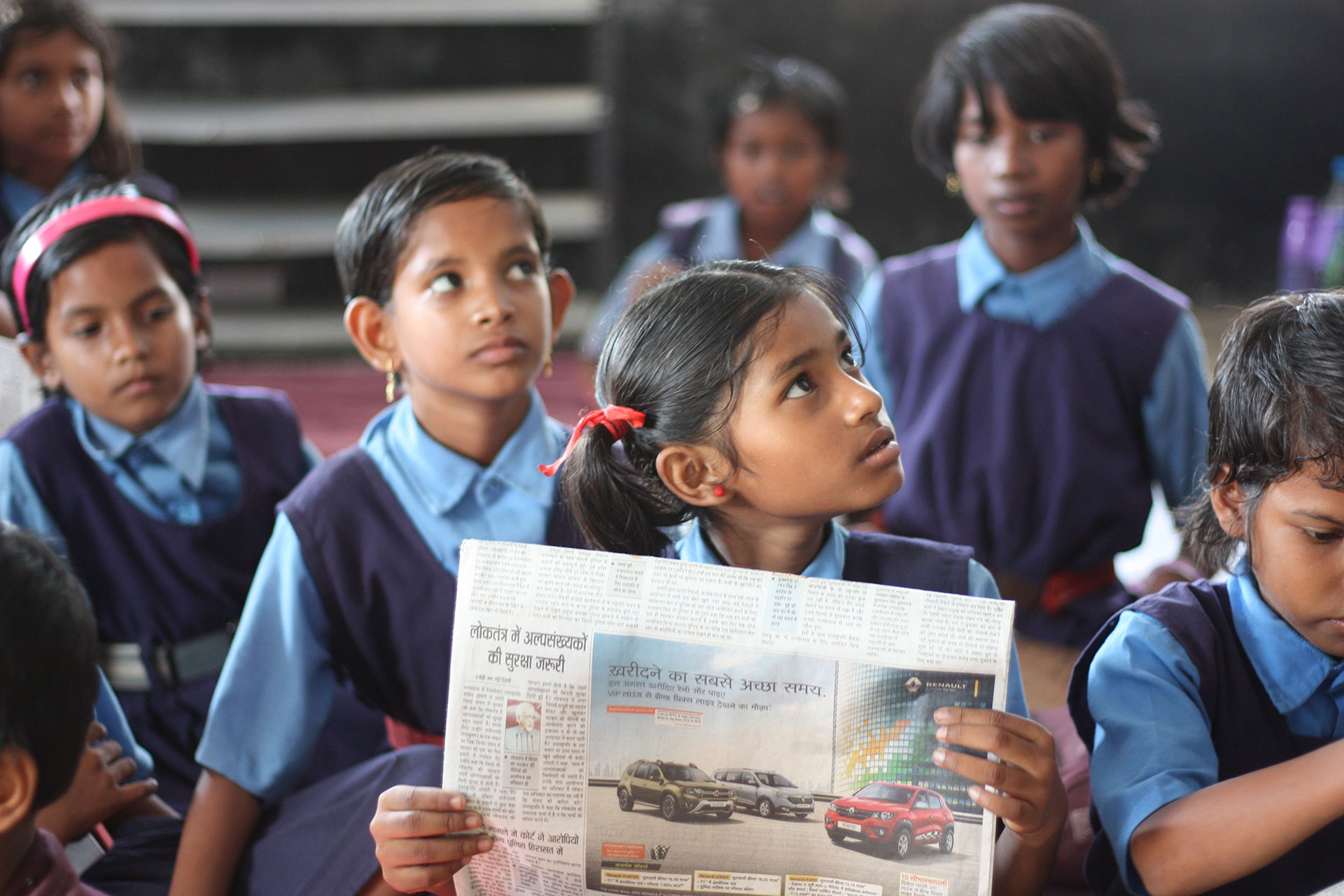

Chhattisgarh, India, November 18, 2019. UNSPLASH/Jakishan Patel
The climate crisis is one of the most important stories of our century. Yet this story has historically been told with facts and figures, not faces or feelings. Climate storytelling has focused on science at the expense of society: we have ignored the ways the climate crisis will intersect and exacerbate other social issues.
As a result, when we think of climate change, we think of melting glaciers and a thick layer of pollution in the air. We forget the stories of everyday people and what aspects of their lives are at risk: their cultures, their mental health, their food systems.
Luckily, this is starting to change. After years of discussions, conferences and reports, a more holistic understanding of the climate crisis is coming into focus. Increasingly, everyday citizens and policy-makers alike are recognising that protecting people from climate change means understanding how this crisis intersects with other issues. We are realising the importance of stepping out of our silos to see that concerns like racial justice, gender justice and Indigenous Peoples’ rights are part of the same fight.
To do this, we need to make space for new voices to come through. To recognise that the battle against climate change cannot be won with climate and economic models alone. If we really want to protect our planet and the people that inhabit it, we have to start listening to what those living on the frontlines of the climate crisis have to say.
Spotlight on: Elizabeth Wathuti
Elizabeth Wathuti is a passionate environmentalist and climate activist from Kenya. She is the founder of Green Generation Initiative (GGI) and the Head of Campaigns and Coordinator of Daima Coalition for the Protection of Urban Green Spaces at the Wangari Maathai Foundation. She served as Global South Youth Co-chair for the COP26 Civil Society and Youth Advisory Council and addressed world leaders at the World Leaders’ Summit opening ceremony at COP26 in Glasgow by asking them to “open your hearts”.
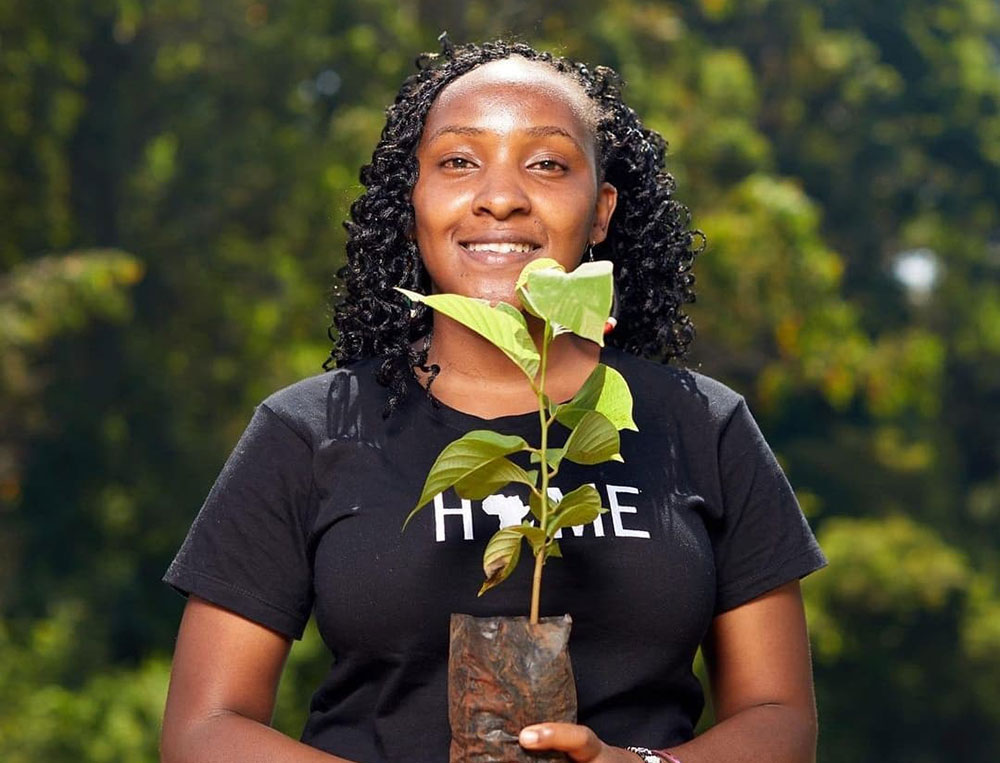

What inspired you to take action on environmental issues?
I grew up in a place where I could connect to the natural world and have that personal relationship to nature. Over time, I have been seeing how the landscapes are changing and how communities around me are being impacted by climate change. I have also been inspired by heroes like Wangari Maathai. She did everything she could for my generation to have a liveable world and a safe future. She saw the forest being grabbed and she went there to protect it. She was mobilising and organising and I think that that is the kind of leadership we need to see in the world today.
What does activism mean for you?
I think activism is about seeing the challenge and choosing to step up and do something about it. Whether it means being a voice or running initiatives in communities. The reason I became an international advocate is because I realised that the work we do back in Kenya is in itself not enough and there are so many challenges we have to face collectively on our planet. It is important to link local action and international advocacy because the work we are doing on the ground can directly be undermined by countries and world leaders not taking bigger steps and action. It all has to be connected.
What are some of the core challenges of achieving climate justice?
I hear a lot about how rich countries are dealing with the climate crisis in their own countries. What I’m not hearing is how the Global North is helping countries like mine to meet the same challenge. That is the missing link on delivering on challenges like climate finance, for instance. It seems as if people from countries like mine have to justify why there is a need to have a loss and damage facility with developed countries. The fact is that, on our end, the climate impacts are hitting right now and people are already at the stage where they cannot adapt anymore. They need to recover.
In your engagement you’ve been able to take part in high-level events and meet decision-makers from around the world. What is the message you hope to convey in those moments?
There is a major disconnect between what we are facing on the ground and what people in the forums are saying and prioritising in terms of what needs to happen right now. When I step into those rooms, I look to deliver the stories of the frontline communities that have contributed the least to climate change yet are facing the worst impacts of it and remind leaders of their moral responsibility to take the actions needed.
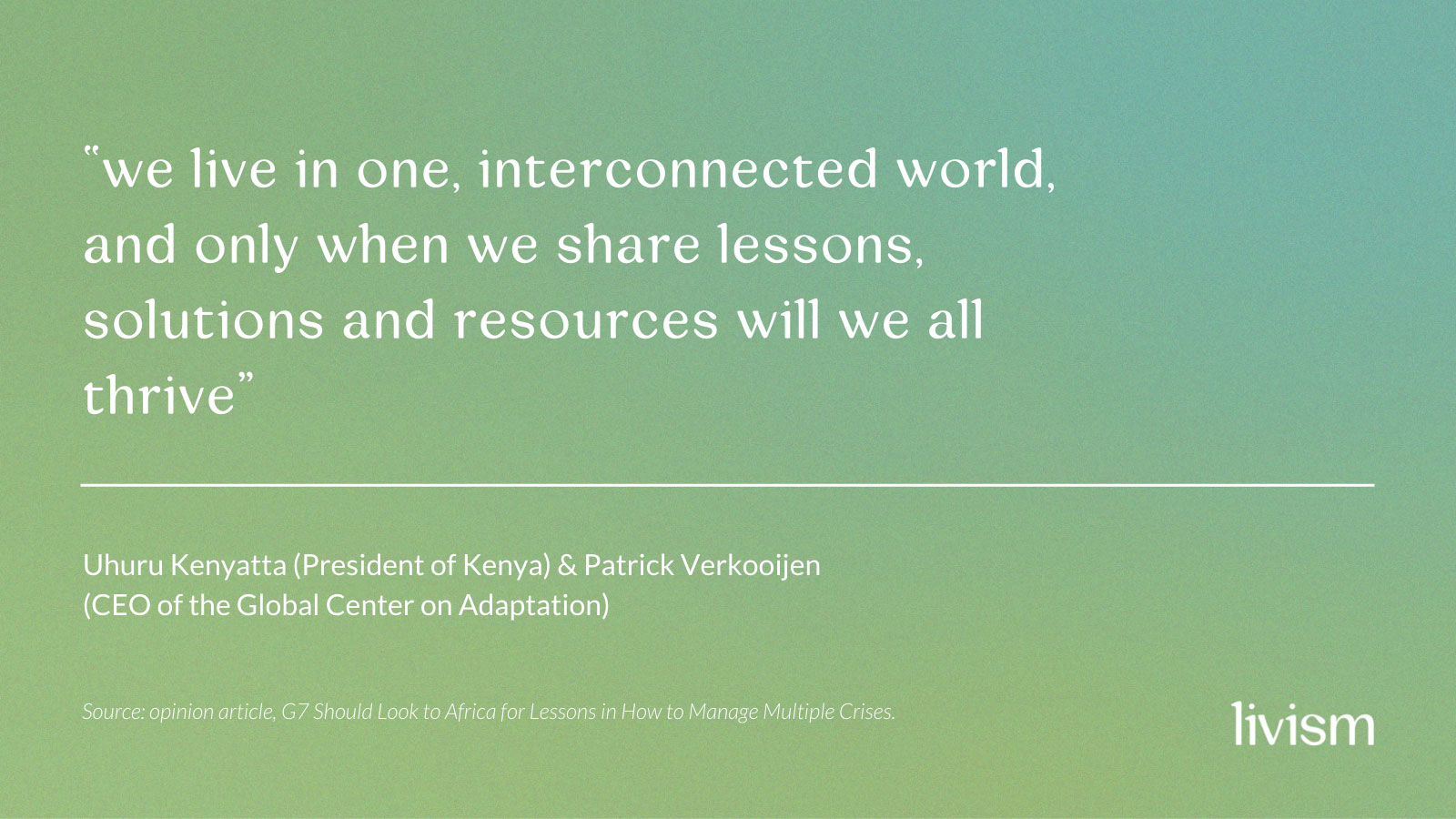

Inspiring activism
For the Nobel Peace Prize laureate Malala Yousafzai, the fight against climate change is equally a fight for girls’ right to education, as millions of girls lose access to schools as a result of climate-related events.
On 10th June, Malala was speaking outside the Swedish parliament where she was joined by Greta Thunberg and Vanessa Nakate for one of the weekly Friday climate protests that have inspired a worldwide movement.
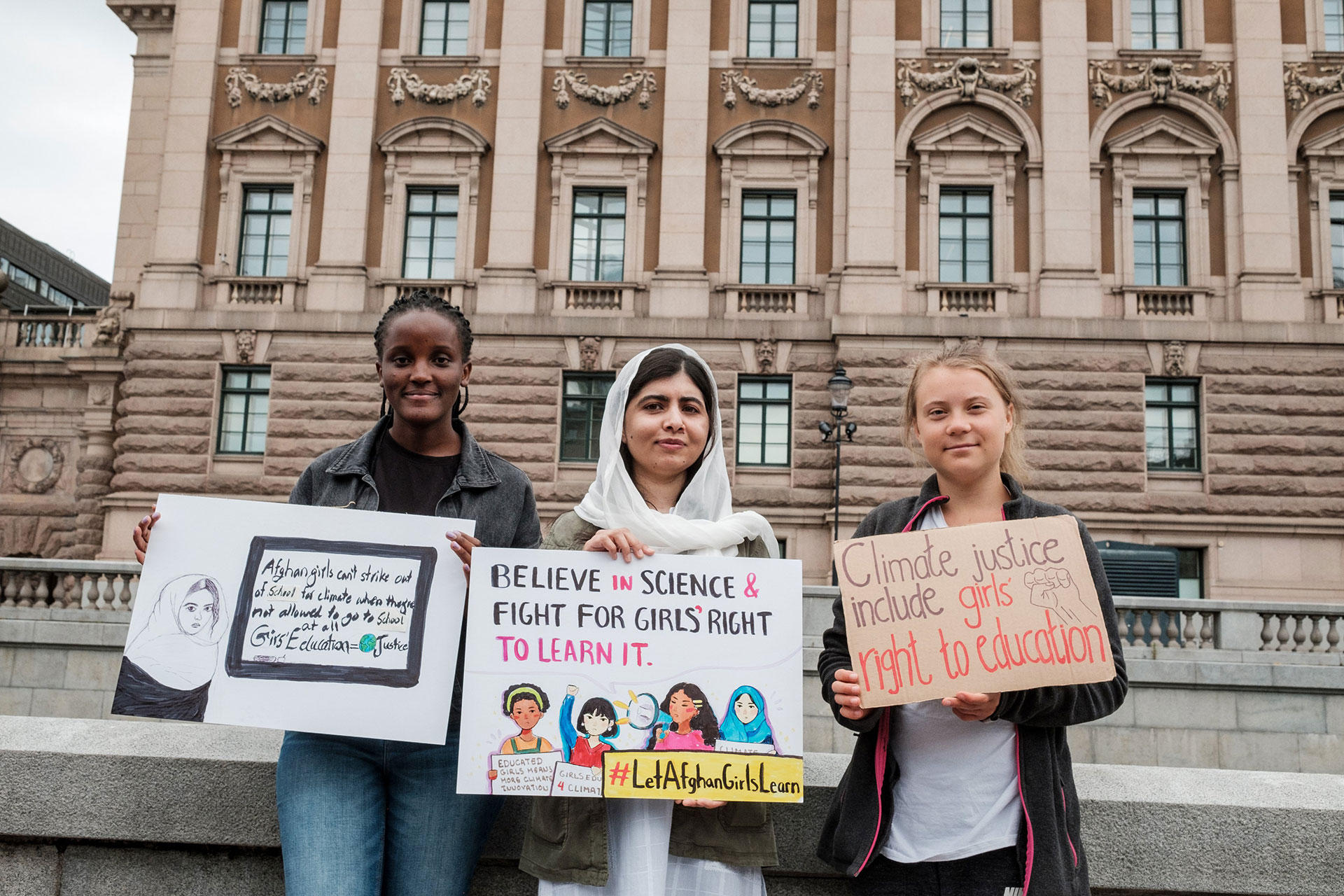

Vanessa Nakate, Malala Yousafzai and Greta Thunberg attend a “Fridays For Future” protest, in Stockholm, Sweden, June 10, 2022. Picture from Malala’s tweet.
In case you missed it
Giving a valid space to Indigenous leadership in tackling the climate crisis is important and this article explains why.
Air pollution may be doing more harm to our body than previously known, a new study by the Forum of International Respiratory Societies reveals. In related news, a US study found that Black people over 65 are more likely to lose their lives by air pollution than their White counterparts.
At Glastonbury Festival, pop star Billie Eilish and her brother Finneas O’Connell made sure that music fans could not ignore climate change. And Greta Thunberg made a surprise appearance saying it was time for society to start “creating hope” rather than waiting for it to arrive: “Hope is not something that is given to you. It is something you have to earn, to create.” We feel you, Greta.
Meet the Somali pageant queen who is raising awareness about climate change.
Older communities of colour and lower-income populations are suffering disproportionate health impacts of air pollution, as shows a study by the non-profit Environmental Defense Fund (EDF).
Recommendations
What we’re listening to
-
Africa Climate Podcast
This is THE podcast reporting on climate change issues in Africa. The host, Sophie Mbugua, explores how climate change impacts economies, communities and ecosystems, while highlighting tons of on-the-ground adaptation and mitigation solutions. An unmissable channel for those who care about the role Africa plays in the fight against climate change.
-
Broken Ground
This podcast by the Southern Environmental Law Center digs up environmental stories in the US South and hears from the people bringing those stories to light.
What we’re attending
-
The Youth Climate Circle
When? Weekly event
Where? Online
The Youth Climate Circle provides a virtual space for young people studying environmental topics, engaging in climate activism, or those worried about climate change and environmental degradation. It gives a chance to offload some of the emotions felt during the day, which cannot always be talked about with friends and relatives. -
Solutions – reparations
When? Tue, 26 July 2022 18:00 – 19:30 BST
Where? Online
Empathetic and holistic sessions that support the learnings on how to undo the legacies of colonialism. These sessions will explore the different solutions that are put forward to the issues of climate as a crisis, as an emergency and as a justice issue.
What we’re reading
-
How Women Can Save The Planet | Anne Karpf
Anne Karpf sheds light on the radical ideas, compelling research and tireless climate campaigns led by and for women all over the world that have given her reason to hope. Her discussions with female activists demonstrate how we can fight back with strength in diversity.
-
A Bigger Picture | Vanessa Nakate
Vanessa Nakate, Ugandan climate activist, shares her experience as a young woman who sees her community suffer disproportionately from the climate crisis. She observes that activists from African and other developing countries are not being heard in the same way as activists from White nations. Her book offers a new vision based on resilience, sustainability and authentic equity.


